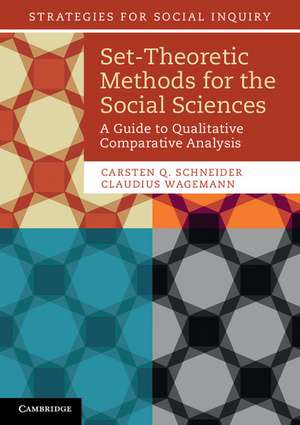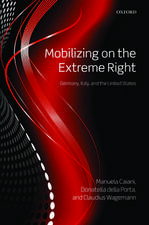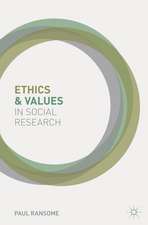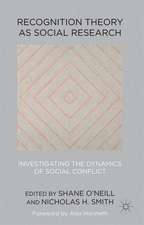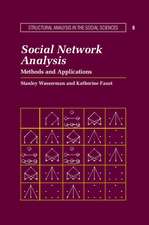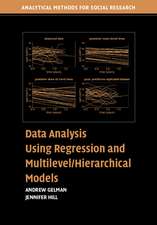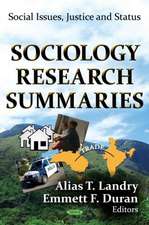Set-Theoretic Methods for the Social Sciences: A Guide to Qualitative Comparative Analysis: Strategies for Social Inquiry
Autor Carsten Q. Schneider, Claudius Wagemannen Limba Engleză Paperback – 29 aug 2012
| Toate formatele și edițiile | Preț | Express |
|---|---|---|
| Paperback (1) | 317.25 lei 43-57 zile | |
| Cambridge University Press – 29 aug 2012 | 317.25 lei 43-57 zile | |
| Hardback (1) | 731.79 lei 43-57 zile | |
| Cambridge University Press – 29 aug 2012 | 731.79 lei 43-57 zile |
Din seria Strategies for Social Inquiry
-
 Preț: 225.19 lei
Preț: 225.19 lei -
 Preț: 217.58 lei
Preț: 217.58 lei -
 Preț: 342.31 lei
Preț: 342.31 lei -
 Preț: 233.30 lei
Preț: 233.30 lei -
 Preț: 199.23 lei
Preț: 199.23 lei -
 Preț: 343.29 lei
Preț: 343.29 lei -
 Preț: 326.92 lei
Preț: 326.92 lei -
 Preț: 319.16 lei
Preț: 319.16 lei -
 Preț: 275.82 lei
Preț: 275.82 lei -
 Preț: 331.71 lei
Preț: 331.71 lei -
 Preț: 202.09 lei
Preț: 202.09 lei -
 Preț: 282.15 lei
Preț: 282.15 lei -
 Preț: 293.34 lei
Preț: 293.34 lei -
 Preț: 237.27 lei
Preț: 237.27 lei -
 Preț: 211.94 lei
Preț: 211.94 lei -
 Preț: 241.77 lei
Preț: 241.77 lei - 11%
 Preț: 587.33 lei
Preț: 587.33 lei
Preț: 317.25 lei
Nou
Puncte Express: 476
Preț estimativ în valută:
60.70€ • 63.55$ • 50.23£
60.70€ • 63.55$ • 50.23£
Carte tipărită la comandă
Livrare economică 07-21 aprilie
Preluare comenzi: 021 569.72.76
Specificații
ISBN-13: 9781107601130
ISBN-10: 1107601134
Pagini: 370
Ilustrații: 37 b/w illus. 55 tables
Dimensiuni: 173 x 244 x 18 mm
Greutate: 0.7 kg
Ediția:New.
Editura: Cambridge University Press
Colecția Cambridge University Press
Seria Strategies for Social Inquiry
Locul publicării:New York, United States
ISBN-10: 1107601134
Pagini: 370
Ilustrații: 37 b/w illus. 55 tables
Dimensiuni: 173 x 244 x 18 mm
Greutate: 0.7 kg
Ediția:New.
Editura: Cambridge University Press
Colecția Cambridge University Press
Seria Strategies for Social Inquiry
Locul publicării:New York, United States
Cuprins
Introduction; Part I. Set-Theoretic Methods: The Basics: 1. Sets, set membership, and calibration; 2. Notions and operations in set theory; 3. Set relations; 4. Truth tables; Part II. Neat Formal Logic Meets Noisy Social Science Data: 5. Parameters of fit; 6. Limited diversity and logical remainders; 7. The truth table algorithm; Part III. Potential Pitfalls and Suggestions for Solutions: 8. Potential pitfalls in the standard analysis procedure and suggestions for improvement; 9. Potential pitfalls in the analysis of necessity and sufficiency and suggestions for avoiding them; Part IV. Variants of QCA as a Technique Meet QCA as an Approach: 10. Variants of QCA; 11. Data analysis technique meets set-theoretic approach; 12. Looking back: looking ahead; Glossary.
Recenzii
'We have long needed a volume that comprehensively, clearly, and systematically covers Boolean and fuzzy set methodologies. Schneider and Wagemann have filled this need with their book, and it will certainly play a central role in guiding research and teaching.' Gary Goertz, University of Arizona
'For relationships that can be viewed in terms of sufficiency or necessity, set-theory provides a powerful tool to model causality. QCA, in its various forms, provides a bridge between single case studies and quantitative analysis of linkages among interval-level or ratio variables across multiple cases by providing the tools to examine relationships in set-theoretic terms among dichotomies or concepts defined as fuzzy sets. This clearly written and comprehensive introduction to QCA, which insists on causal analyses that are explicitly intended to study possible multiple pathways to given outcomes, is must-reading for social scientists who wish to expand their methodological horizons and get away from the all too common 'throw as many variables as possible into the regression hopper and see which ones come up statistically significant' form of barefoot empiricism.' Bernie Grofman, University of California, Irvine
'This is the first volume that bridges the fundamentals of set-theoretic methods with the many ongoing innovations. A must for anyone aiming to exploit the full potential of the QCA toolbox.' Benoît Rihoux, Université catholique de Louvain, Belgium, and COMPASSS international network
'For relationships that can be viewed in terms of sufficiency or necessity, set-theory provides a powerful tool to model causality. QCA, in its various forms, provides a bridge between single case studies and quantitative analysis of linkages among interval-level or ratio variables across multiple cases by providing the tools to examine relationships in set-theoretic terms among dichotomies or concepts defined as fuzzy sets. This clearly written and comprehensive introduction to QCA, which insists on causal analyses that are explicitly intended to study possible multiple pathways to given outcomes, is must-reading for social scientists who wish to expand their methodological horizons and get away from the all too common 'throw as many variables as possible into the regression hopper and see which ones come up statistically significant' form of barefoot empiricism.' Bernie Grofman, University of California, Irvine
'This is the first volume that bridges the fundamentals of set-theoretic methods with the many ongoing innovations. A must for anyone aiming to exploit the full potential of the QCA toolbox.' Benoît Rihoux, Université catholique de Louvain, Belgium, and COMPASSS international network
Notă biografică
Descriere
A 'user's guide' to Qualitative Comparative Analysis (QCA) and the methodological family of set-theoretic methods in social science.
